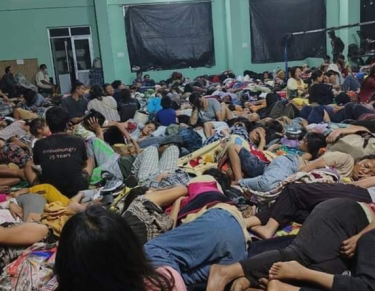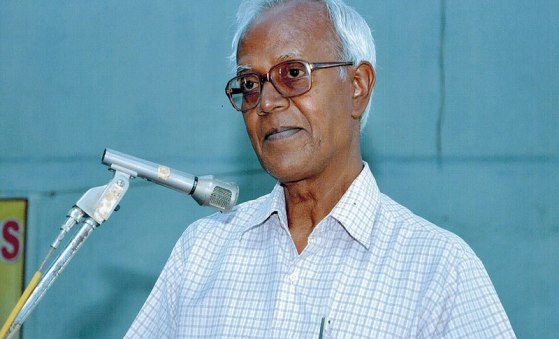
The Manipur government has announced plans to shut down all relief camps housing people displaced by ethnic violence by December 2025, as part of a three-phase resettlement programme for internally displaced persons.
Chief Secretary P.K. Singh told journalists in Imphal on 4 July that the state had developed the resettlement plan in consultation with the Centre, particularly the Ministry of Home Affairs. The first phase of the programme is already underway.
“The Centre, the State government, and CSOs (civil society organisations) are working towards the resettlement of the internally displaced people. Some of them have started going back. The number of displaced, which was 62,000 in the beginning, is now about 57,000,” Singh said.
The Chief Secretary revealed that he had taken stock of Churachandpur and Kangpokpi on 3 July, where people had begun returning to their homes.
The conflict between the Meitei and Kuki-Zo communities began on 3 May 2023, forcing thousands from their homes. Currently, around 57,000 people remain in over 280 relief camps across the valley and hills.
Singh explained that displaced people have been categorised into three groups for rehabilitation. The first comprises 7,000 to 8,000 families whose houses were destroyed during the violence. These families will receive financial assistance of Rs 3.03 lakh each to rebuild their homes wherever they choose.
The second category includes approximately 7,000 people who fled their homes but whose houses remain structurally intact, though dilapidated after two years of neglect. These families will also receive monetary assistance for repairs.
The third group consists of an estimated 8,000 to 10,000 people who will be unable to return to their original homes even after December due to security concerns. These individuals, many from areas including Moreh, Kangpokpi, and Churachandpur, will be housed in prefabricated accommodation.
“They will be allowed to stay in some 1,000 pre-fabricated houses we are building. We have plans to shut the relief camps by December,” Singh added.
The government has already commissioned 3,000 prefabricated units to house displaced people earlier, with construction of an additional 1,000 units now in progress.
Those unable to return by December include Kuki-Zos displaced from Imphal and other valley towns, and Meiteis displaced from the Indo-Myanmar border town of Moreh and areas including Kangpokpi and Churachandpur. “These are people who still cannot move back because of security reasons and will have to be housed in pre-fabricated houses. It is likely that these people will only be able to move back when the situation is completely normalised,” a senior Home Department official explained.
The Chief Secretary reported positive developments in some areas, noting that farming activities have resumed with communities sharing water and resources. “These are going on peacefully, and it is a good sign that both sides are farming together within an eyeball-to-eyeball distance and are sharing water,” he said.
The resettlement timeline envisages completion of the first phase by July, with those ready to return immediately doing so. The second phase will conclude by October, followed by the final phase in December.
Singh acknowledged ongoing challenges, stating: “We have appealed to all CSOs to maintain calm. One odd incident can happen here and there. Some mischievous elements are there everywhere. Some people want to prolong it [conflict]. Some others want mischievous things to happen.”
The region has experienced relative peace in recent months, particularly in foothill areas where the Meitei-majority valley meets Kuki-Zo majority hills. The last major cycle of violence occurred in November 2024, though isolated incidents have continued, including the injury of a Meitei farmer in gunfire at Bishnupur district and the killing of a Kuki-Zo woman during subsequent security operations.
The government has also announced plans to restore free movement across major highways, with Singh expressing optimism that people will soon be able to move freely across the state’s major roads.




